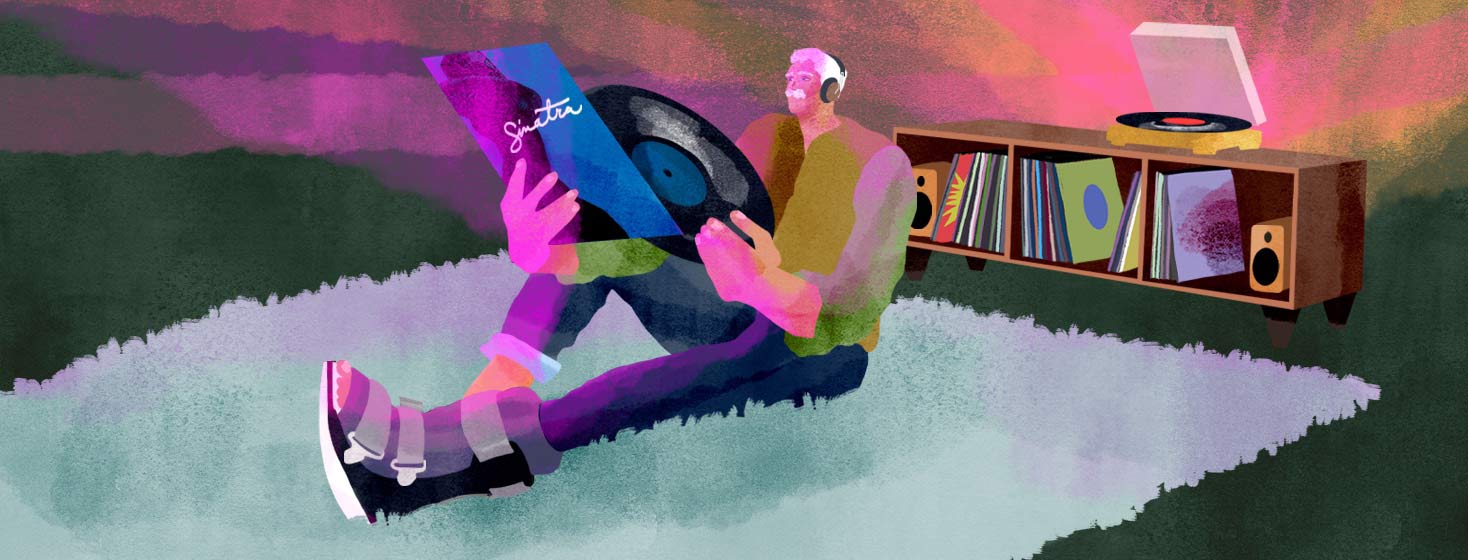How I Spent Two Months Being Immobilized
The combination of an undetectable HIV viral load and avoiding serious injury to my body over the years led me to a false sense of invulnerability. That illusion was shattered recently when I broke my ankle while walking my dog.
Besides the overwhelming physical pain, my thoughts plunged into a dark space. I immediately blamed myself. Neither the wet grass nor my dog conspired to make this happen. It was something I had done.
Except I knew that wasn’t true. The universe was not trying to punish me. Life is not trying to teach me a lesson, though there are lessons to be learned. That thinking makes me the center of everything; I have never believed that to be the case.
The voice in my head
But I was still left with the gnawing voices in my head when I learned I would be immobilized for two months. I am a very independent person who takes great pride in coming and going as I please. Now that was all taken away from me.
Time passes slowly when you cannot move around. Unreasonable doubt and fear began to fill my thoughts. I worried that something might not heal correctly. The fear of possibly being unable to return to work burrowed deep into my mind. How would I pay my bills? It overwhelmed me.
I had to combat this. So, I broke it all down into segments. I started by asking myself what do I have control over.
The business of being injured
I do not enjoy insurance paperwork. It stresses me out though I have been dealing with it since the early nineties. I knew to accept the forms and phone calls as necessary. They were just tasks I had to do.
So, I listed them and checked them off as I did them. Each task was given a must-do date, which I used to decide when to tackle instead of trying to accomplish it all at once.
If I had to make a phone call, I would put it on my to-do list for the next day, so I could mentally prepare for it. And if someone called and I didn’t feel like speaking, I just let it go to voice mail. That was an essential element for the other important piece of what I had control over.
What do I need to do to take care of myself?
I always go into a treatment or doctor’s visit to be a good, informed patient. I do my research, and I ask questions. And most importantly, I listen to what they are telling me to do.
Once this information is given to me, I feel empowered by owning it. I may not be happy about it, but I know things will only worsen if I do not support my health.
I also listen to the goals. These are steps to recovery, and I try to focus on the next one only while understanding the big picture. Breaking it into pieces made the whole experience easier to digest.
What do I do with all this time on my hands?
The first few weeks were easy. The medicines made me sleepy, so I napped and watched television. But eventually, I began feeling the need for some stimulation.
This occurred in December, so friends and family stopped to spend the holiday with us. While that time was appreciated, I still felt overburdened by the companionship.
I did not want to discuss the accident with every visitor repeatedly. I had to temper my feelings of being 'on display' with an understanding that these people were expressing concern for my well-being.
I also made of list of my favorite things to do when I have time to burn. Reading, listening to music, doing word puzzles, playing with my dogs, and watching documentaries are some of my favorite pastimes.
To prevent these from becoming boring, I limited how much time I would spend doing them. I planned my day and looked forward to the shift in routine. This kept things exciting and gave me the satisfaction of doing things.
Overcoming feelings of being a burden
The most challenging part was the feeling of being a burden. There was only a little I could contribute, but still, I found ways to do that. Small tasks around the house, phone calls to schedule annual maintenance, or follow-up calls to previous issues kept my sense of purpose alive.
By agreeing to involve myself and engage in my favorite downtime activities within a schedule, the feelings of depression began to lift. And as my ankle healed, I found myself doing upper body exercises in a seated position. It was a good reminder that I had not lost the use of my entire body.
Using all the tools at my disposal, I worked through my dark moments and felt stronger for having been through them. That’s the lesson I needed to learn.

Join the conversation